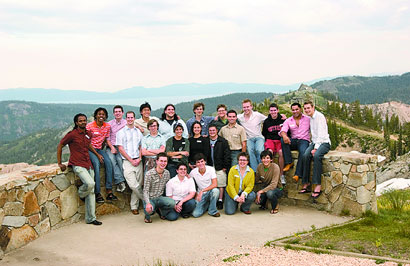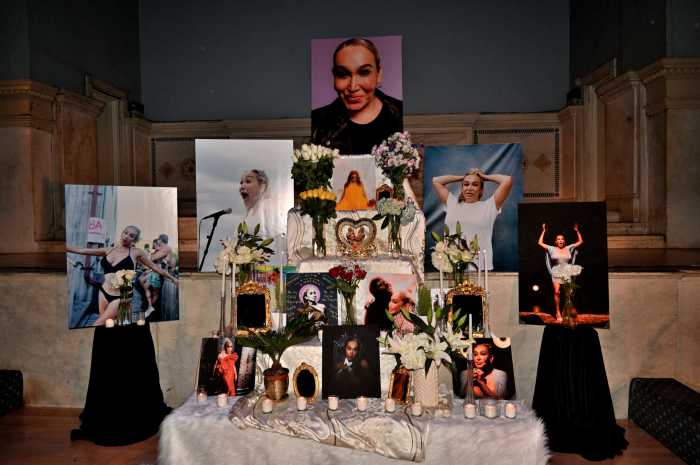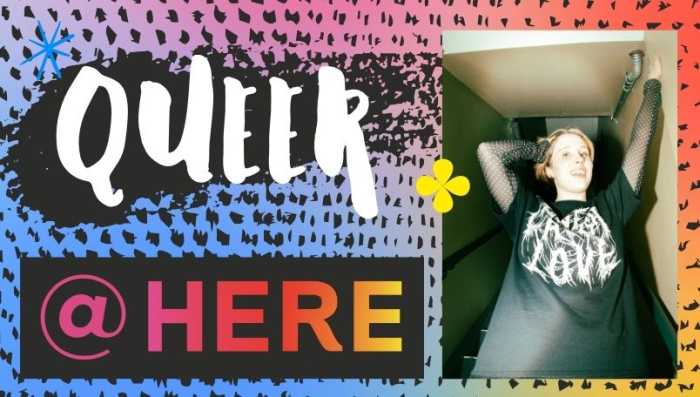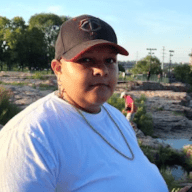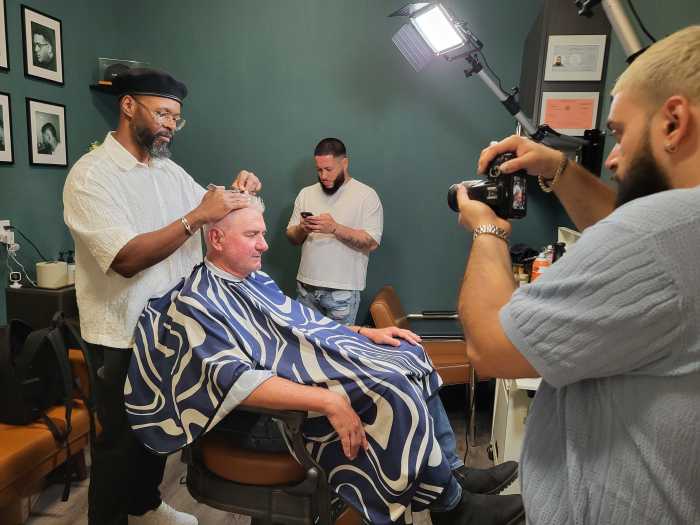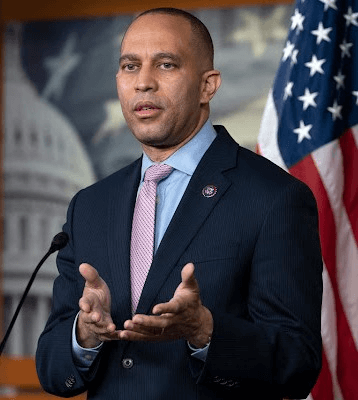One national foundation works to attract and support superior students with generous scholarships
When Julie Schell learned that her mother had intercepted a love letter from her first girlfriend more than ten years ago at her home in Las Vegas, Nevada, she knew that coming out wasn’t going to be easy.
“I remember walking into my house. My dad was crying and my mother had left the letter opened on the counter. I remember thinking, ‘I can’t say anything, I have to hide this,’” Schell recalled.
Schell initially attempted to “swallow everything and live a straight life,” but eventually revealed the truth to her parents, which ultimately resulted in her total estrangement from them. It was a decision that took its toll both emotionally and financially.
“I was suicidal, I was depressed…[and] I lost about 95 percent of my financial support,” Schell said.
Despite this lack of support, Schell managed to excel in school and obtained both her bachelor’s and master’s degrees while working two to three jobs at once. By the time she was accepted to a Ph.D. program at Columbia University, however, her financial prospects were dwindling. Then she found The Point Foundation.
Founded in 2001 by entrepreneurial couple Bruce Lindstrom and Carl Strickland, The Point Foundation is the self-described “first and only nationwide Lesbian, Gay, Bisexual and Transgender (LGBT) scholarship organization that focuses exclusively on granting assistance to undergraduate, graduate and post-graduate students of distinction.”
To date, it has offered an unparalleled combination of financial and emotional support on an ongoing basis to 27 LGBT students from diverse backgrounds, and hopes to extend its services to many more than that as the foundation continues to grow.
“I never had a gay role model,” said 58-year old Lindstrom. “I was taught in church that a homosexual male wore high heels and lipstick and raped children.”
Ironically, it was Lindstrom’s experience with coming out in a Southern Baptist family that eventually gave birth to The Point Foundation.
“For 15 years, I was totally ignored and isolated,” recalled Lindstrom. “That 15 years of abandonment really shook me… I wanted to be involved with an organization that supported young people who were going through the same experience.”
The Point Foundation’s administrative costs are underwritten by Lindstrom and Strickland, as well as the board of directors and an anonymous donor, ensuring that 100 percent of donations are allocated for scholarships. In the past fiscal year alone, The Point Foundation has managed to increase donations from $300,000 to $1.5 million, a figure which is unprecedented according to its executive director, Vance Lancaster. Formerly the director of strategic giving at the prestigious Gill Foundation, a Denver-based organization that awards grants to LGBT non-profits, Lancaster was serving on The Point Foundation’s board when he was offered the full-time role of executive director, which he officially took over in July of 2004.
“I’ve had some great jobs, but this is the first time I’ve felt so passionate about what I’m doing,” said Lancaster. “For many of these kids, The Point Foundation is the first positive LGBT association they’ve had. [Their] stories are really what got me interested in doing this full time.”
Lancaster is referring to stories like that of John Pachankis, now pursuing his Ph.D. in clinical psychology at SUNY Stonybrook, who was born and raised in the deep south of Louisiana by his mother and her abusive, alcoholic husband. Pachankis did not have to come out in order to know that being gay was not acceptable.
“I was taught that I couldn’t be who I was from an early age,” Pachankis said. “I constantly had to monitor how I spoke. I was marginalized by peers, teachers, family. When I expressed my desire to go to college, [my parents] weren’t supportive.”
After having accrued a large amount of debt putting himself through school, Pachankis began searching for other sources of funding. When he heard about The Point Foundation, it seemed like a perfect match.
“The board of trustees looks for those who give back to the community,” said Pachankis.
Armed with achievements such as the most outstanding psychology research award for his work in HIV prevention at Loyola University, his service as an HIV/AIDS testing counselor, and his volunteer work with Food for the Hungry, Pachankis put all of his energy into The Point Foundation’s intensive application process and became one of the 25 out of 1,000 applicants to be awarded a scholarship this year.
All of the Point scholars are quick to mention that, while the financial awards they receive may be crucial to their academic success, it is the mentoring aspect of The Point Foundation that has proven priceless. Once a scholar has been chosen, she or he is paired with a trustee who serves as an outlet for advice, a role model and—in many cases—a trusted friend. Additionally, the annual two-day retreat in Squaw Valley, Lake Tahoe, provides an opportunity for scholars to meet and talk about their individual experiences.
“The peer group itself is just amazing,” said Point scholar and Mississippi native Marcie Fisher-Borne, who is currently working on her Ph.D. in social work at The University of North Carolina at Chapel Hill. “Students keep in touch and create a network—[the kind of support offered by The Point Foundation] is just not there [otherwise] in the South.”
For that reason, Fisher-Borne plans to remain in the South after graduation, despite the hardships she and her life-partner have faced as an out lesbian couple.
Arizona native and Point scholar Lawrence Robinson, now a student at NYU Law School, shares Fisher-Borne’s sentiments.
“What we need to do in the community is step forward and give a voice to the places that have none,” said Robinson at a recent Point Foundation fund-raiser in Manhattan.
After graduation, Robinson intends to return to his home state in order to provide leadership and legal assistance to LGBT individuals who have been the victims of marginalization and discrimination.
Despite the organization’s many success stories, Lancaster emphasized the need for the program’s expansion, as well as the importance of educating people about the difficulties still faced by many LGBT students today. Pointing out that the average coming-out age is now 16, as well as to events such as the recent hate-motivated attack on UCLA’s LGBT Center, Lancaster commented, “The reality is that [LGBT students] are discriminated against and beaten up in school and educators don’t step in. We see this in application after application.”
In an effort to reach out to some of these disenfranchised students, as well as to educate the larger population, The Point Foundation has partnered with media giant MTV’s campus channel, mtvU, for “Out on Campus” week, which began Monday, October 4 and will continue through National Coming Out Day next Monday. In addition to featuring some of the Point Scholars’ stories during a week of programming dedicated to LGBT students who are “out on campus,” mtvU has also co-sponsored two $10,000 scholarships with The Point Foundation, which will be available to applicants attending any of the 700 colleges to which mtvU is broadcast nationwide.
“It’s a great opportunity for us to get the word out,” commented Lancaster. “Once this program airs, we’re going to have a lot more than 1,000 applicants next year.”
Today, thousands of miles away from Las Vegas and the parents who saw her sexual orientation as a failure, 31-year-old Julie Schell is in her third year of a Ph.D. program at Teachers College of Columbia University. Schell is focusing specifically on the ways in which higher education plays a significant role in the process of recovery from traumatic experiences.
“Higher education saved me,” said Schell. “This incredible network of support that [The Point Foundation] has offered has really made me feel like a part of something bigger. The Point Foundation is who I want to be when I grow up.”
More information about The Point Foundation is available online at thepointfoundation.org
We also publish:


